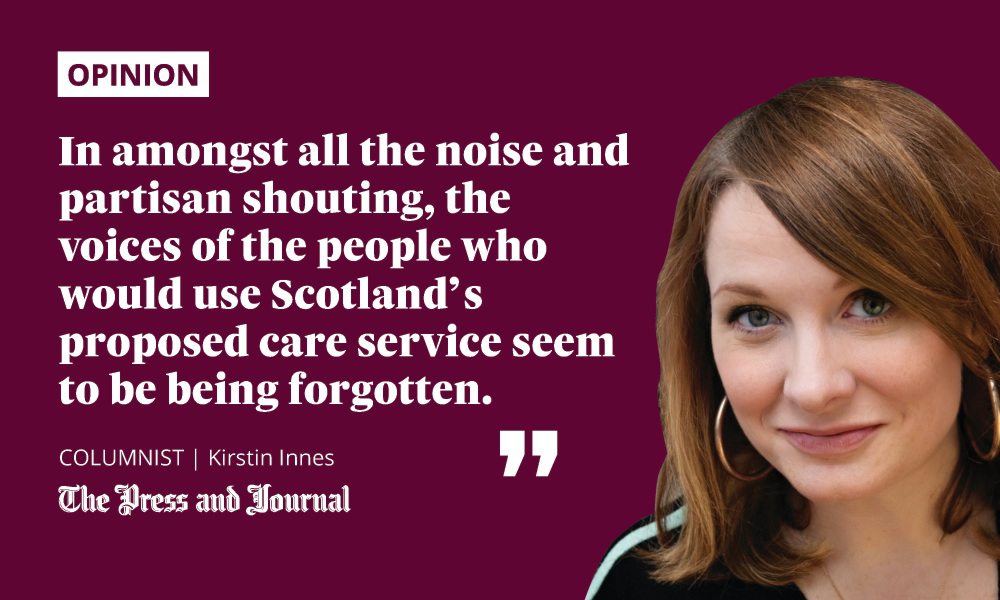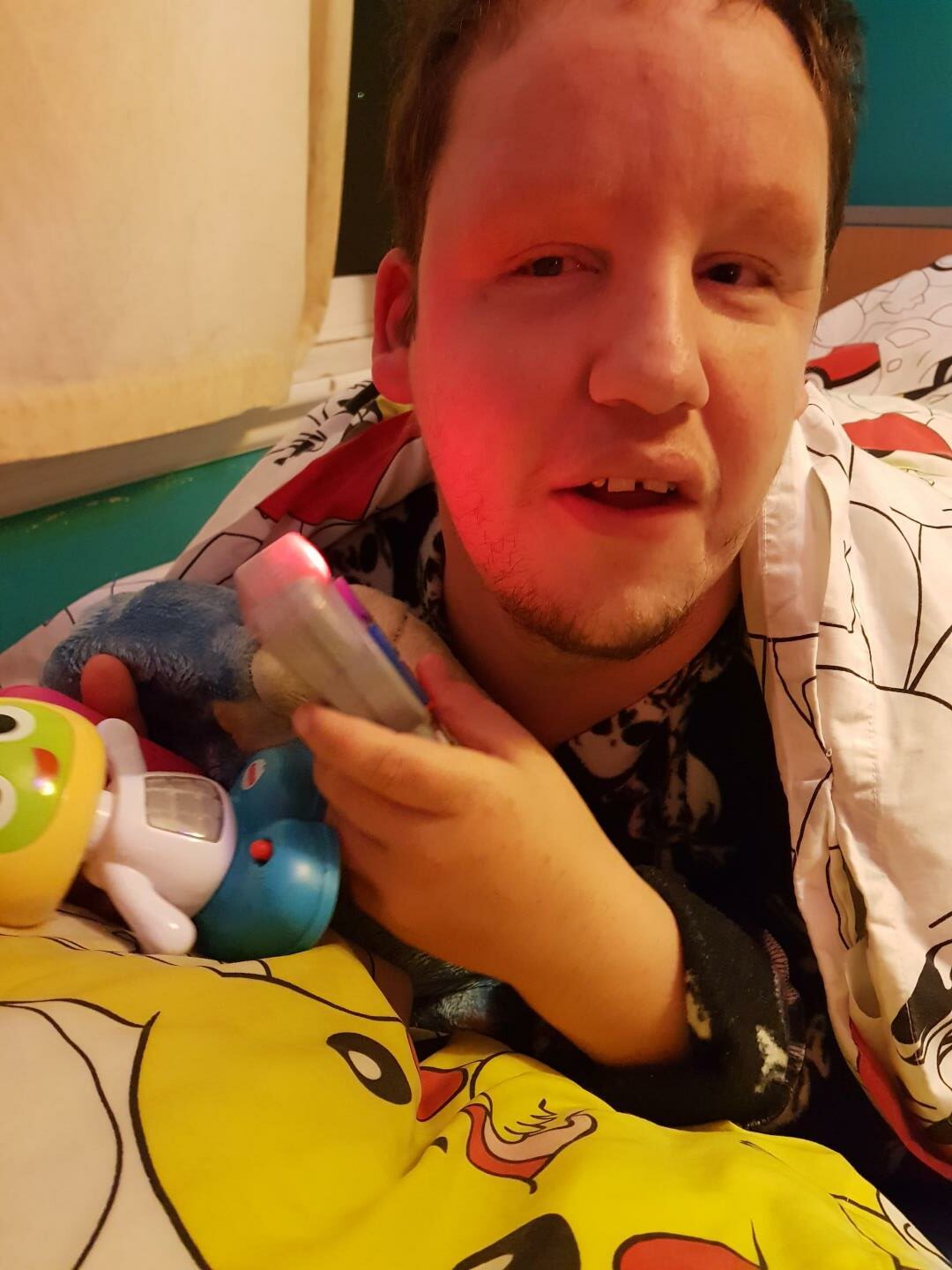In the last month, the Scottish Government have launched a consultation towards a National Care Service, which they suggest has been partly designed to “end the postcode lottery” for care service users across Scotland.

The conversation immediately not only became party political, with the Lib Dems and Tories accusing the SNP of “centralising” and “wasting money on administration”; but the issues under discussion have also bled into the news that the UK Government is raising National Insurance to fund “health and social care”, as well as into the current campaign by millennial mothers pressure group, Pregnant Then Screwed, to reduce the cost of UK childcare (currently the third most expensive in the world).
In amongst all the noise and partisan shouting, the voices of the people who would use the proposed care service seem to be being forgotten.
‘We have our heads down, hands busy’
Service users and their families – across the spheres of adult social care, child services, elderly care and addiction rehabilitation – have been invited to respond to the Scottish Government’s consultation on the subject by November, but they don’t seem to be invited to contribute to the discussion in the media.
“You maybe don’t hear from us because we don’t have a very active voice,” says Fiona Fisher, a full time carer for her profoundly disabled 27-year-old son, Jonathan.
“We have our heads down, hands busy. Most carers I know wouldn’t feel they had the time or energy to get their voices heard.”
Jonathan has Lowe syndrome, a rare genetic condition which affects the eyes, brain and kidneys. He is completely dependent on his mother for support; Fiona, a former bio-chemist, has spent almost half of her life looking after him.
“There’s something it does to the psyche,” she says. “I was thinking the other day, I see my son’s genitals more than I see my own. There’s something deeply weird about that, but that’s our normal.
“It does make you different, this. Maybe I’ve just got a black sense of humour: I go into carers meetings and everyone is polite and nervous at first, so I always try and do the ice breaker: ‘Right, come on, who’s going to talk about bodily fluids?’
“I realise, in my own perception, I’d been thinking of myself like a second-class citizen. We don’t think of unpaid care as work.
“Because it always ends up about bodily fluids when carers get together. If it’s not vomit, it’s shit and piss, so let’s just get on with it: we need to talk about it with each other because who else understands?
“When Jonathan was 18, he transitioned to day service. I could have used that time to find part-time work but by that point I’d lost all confidence, which might be hard to believe because I’m quite a bolshy person, but socially I just found it really hard to rub along with people. I kind of felt divorced from society.
“I realise, in my own perception, I’d been thinking of myself like a second-class citizen. We don’t think of unpaid care as work. I’d think to myself, ‘What am I in society? Well, I’m just the person that changes arses and feeds people’.”
‘I’d rather be struggling than grieving’
Fiona took Jonathan out of his day service just before lockdown.
“I was getting him dressed, and he sneezed full in my face. The advice we were getting about the virus on TV was to sneeze into the crook of your elbow; I couldn’t tell Jonathan that, not in a million years – even if I showed him what to do, it wouldn’t stick. So the idea of him and his peers in the day service, in their wee minibus; it just didn’t sit right.”
She has found it difficult to access overnight respite care for her family for almost two years following an administrative shake-up in her local authority (Fife Council) procurement system. While Jonathan’s day service resumed last month, Fiona doesn’t feel that the world has been made Covid-safe for people like her son yet.
“Well, I’d rather be struggling than grieving. I don’t know how he would cope with this if he caught it. Or me, if I developed Long Covid, what would happen to Jonathan? There goes the main carer of the household.
“There is a sense of pressing your nose up against the window: ‘Oh, look at the rest of the society, all out at the Euros or the Reading festival’. When is some kind of acknowledgement of this Cinderella world over here going to happen?
“It’s not party political, but I do think it’s to any government’s advantage not to acknowledge carers too much. If I just said: ‘Right, that’s it, I’ve had enough, you can take him’, I guarantee it wouldn’t be less than £50,000 a year to pay for his care, but not sending any financial help to us or even a minimum wage for us to survive on is a false economy. Where does that put carers in the layers of society?”
‘We’re capable of better than this’
Fiona is currently taking in the proposals for the National Care Service, and describes herself as “cautiously optimistic” about it.
“When you talk to Scottish Government staff in the sector they’re setting a good tone, but we’re at the embryonic stages now. Anything that takes care out of private hands is going to be a good thing: care should be run for care’s sake, not to make a profit off someone being disabled or elderly or ill.
“The idea of higher taxation seems to be difficult for people here to get their heads round, even though you’re getting a better net underneath you. We need to rewrite this social covenant
“For it to work properly, they have to put carers and service users at the heart of any framework. It should be everyone’s right to have dignified care that suits them, rather than telling them: ‘You can have this or nothing’, but that so very rarely happens.
“Some local authorities in Scotland are better than others. As a society we probably just all need a good shake up in our thinking. It’s not something that happens to someone else; most people at some point will have to touch the care service in some way.
“Some of the Nordic countries seem to do it very well, but the idea of higher taxation seems to be difficult for people here to get their heads round, even though you’re getting a better net underneath you. We need to rewrite this social covenant.
“It’s just having the will, and the political will to do something to fix it, you know. Maybe the Care Service will do that. I hope so. We’re capable of better than this.”
Kirstin Innes is the author of the novels Scabby Queen and Fishnet, and co-author of the forthcoming non-fiction book Brickwork: A Biography of the Arches


